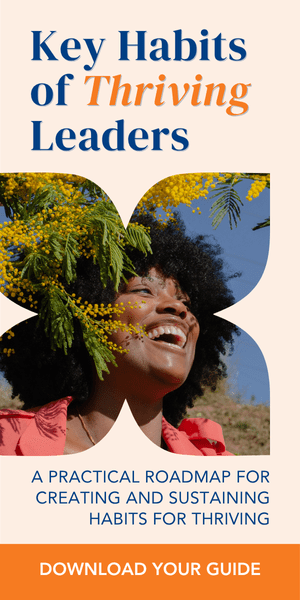If you wanted to become a leader, all you had to do was go to the right schools, fill your MBA toolkit, get the right jobs, and climb the corporate ladder on your way to an executive suite, your burnished nameplate on the door. You had arrived.
Not today. We live in accelerated change and large-scale disruption. New technologies alter the playing field daily. Unpredictable tsunamis and acts of terrorism wreak devastation. Rising economies in one part of the world threaten the loss of jobs, customers, and access to supplies in another part, yet they also open new markets for products and services. In this ever-shifting environment, many of our former management tools no longer solve our problems—in fact, they may even cause them.
To make matters more convoluted, human values are evolving too. A growing breed of customer, worker, and investor is demanding greater accountability and consciousness from companies and the people who lead them.
This unfolding, unfamiliar world is throwing the sacred management belief—leadership=control—on its head. We are not in control of the complexities we face.
And here’s where real leadership steps in.
There is an altogether fresh way of thinking about leadership, a way that is at once practical and humane, grounded and visionary. That is, as long as we’re willing to transform ourselves.
leadership redefined: from noun to verb
The word leadership is generally defined as a noun—a title, role, or rank. Yet this static definition is impotent; it cannot keep pace with today. A better approach? Regard leadership as a dynamic verb—a conscious path of practice married with performance.
Four telltale signs say you’re ready for this path?
- You’ve relinquished the illusion that leadership is about control. You recognize effective leadership means being a facilitator—the Latin root facilus,“to make easy.” Real leadership creates the conditions where better results—for employees, your organization, the community or societies you touch—can be accomplished with greater ease and sustainability.
- You know real leadership comes from inside, rather than from the latest management fad or the dictates of an organization.
- You realize leadership as a vehicle for personal and collective development, one through which bodies, minds, and hearts—including your own—can grow and mature.
- You aspire to use your power as a leader to serve something great and meaningful.
what do I mean by leadership as a practice?
Learn to play the violin, speak a foreign language, or master skydiving. Gaining know-how in a new discipline means dedicating time and energy to ongoing practice. Likewise, becoming a more fully integrated human
being and a better leader means approaching leadership as a lifelong pursuit, rather than as an “I-have-arrived” endpoint.
This path of leadership calls you to become more awake, aware, authentic, and alive. And the commitment it takes runs deep.
When he studied experts in their respective crafts, human potential pioneer George Leonard found, “…while talent is important, practice is far more important as a factor in high-level performance.” Taking on leadership as a practice requires stepping up to the plate as a learner, an orientation from which you show up with “I don’t know” (rather as always the knower), you move into the unknown with the courage to meet reality as it truly is (rather than as you wish it to be), and you stay on the learning path with a penetrating honesty about how your beliefs and motivations help or hinder your effectiveness and wellbeing (and that of others). Being a learner also calls you to set clear intentions, often in the face of confusion and chaos, and draw on your self-worth, a profound source of inner strength to keep your practice of leadership healthy.
As you use leadership as a practice for evolving, your unfailing ability to learn is perhaps your saving grace. This innate competence has served you thus far, from your first steps as a toddler to your travels in the work world. And it will serve you now, as you proactively widen and deepen your effectiveness as leader and human being. A sword is strengthened in the repeated heating and cooling of the tempering process; so too are we transformed by sticking with this practice of leadership.
new tools for redefining your leadership as a practice
Adopting leadership as a practice means training yourself in new—and oftentimes counter-habitual—tools. Five tools you can apply today?
- Mindfulness–Observe your thoughts and behaviors in the present moment, and notice how you uniquely tick. But do this with compassion and curiosity, rather than harsh judgment. Beating yourself up will only beat you down; a discerning, nonjudgmental mind can help you deal with the complexities of life and work with a generous yet practical wisdom.
- Deep Listening–Listen with eyes, ears and heart wide open. Instead of listening for only that which relates to you or listening to empathize with another, listen for what isn’t yet audible, what has yet to become clear. Pay close attention to your inklings and intuitions too for they may broaden your perspective. This kind of listening creates an inviting matrix of possibility, not constrained by your preconceptions.
- Strategic Questions–Rather than showing up as the one who has the answers (many of which may no longer work), ask open-ended, inspiring questions. As poet Rainer Maria Rilke one said, “…try to love the questions themselves.” Design questions that take you out of the box, engage hearts and minds, and get to the essence of the problem. Your aim? Use questions that facilitate movement towards healthy change.
- Personal Leadership Platform – What is your core purpose, your values and strengths, your vision for thriving (and for helping others do the same)? Use these elements of your personal leadership platform to guide your decisions along your leadership journey; in that way, what you learn on the path of leadership will feel personal, relevant, and worthwhile.
- Experimentation – Try a new method to an old problem or routine, and learn from trial and error. See learning as a joyful, fun exploration!
the rewards are many
Undertaking leadership as a practice takes diligence and energy. It is, at its heart, a conscious commitment to personal mastery, a depth of self-knowing that differentiates exceptional 21st-century leadership from leadership models of the past.
And the benefits of investing in this kind of personal transformation ripple outward; they affect not only you, but also your team, organization, and beyond. Leading in this way enriches your life and the lives of those you touch. Such a life is inherently satisfying and well worth the leadership challenge.
This blog is excerpted from an article in our resources on wisdom, wellbeing, and leadership. Enjoy! For more information, contact me at renee@wisdom-works.com.
READ MORE
- The Seeds Of Mindfulness Grow Wellbeing: Aetna’s Innovative Approach
- What Is Practical Wisdom? (And Are You Leading From It?)
- Resentment: A Potent Medicine For Good
- Is The Planet Ready For A Different Way Of Leading?
- Ready To Boost Leader Effectiveness And Wisdom? Try Mindfulness!
- Success Means Taking Care Of What Enables You To Thrive
- Leading From Authenticity: Boosting Your Energy, Impact, and Wellbeing
- Wellbeing Leadership: Where Are YOU On This Journey?







